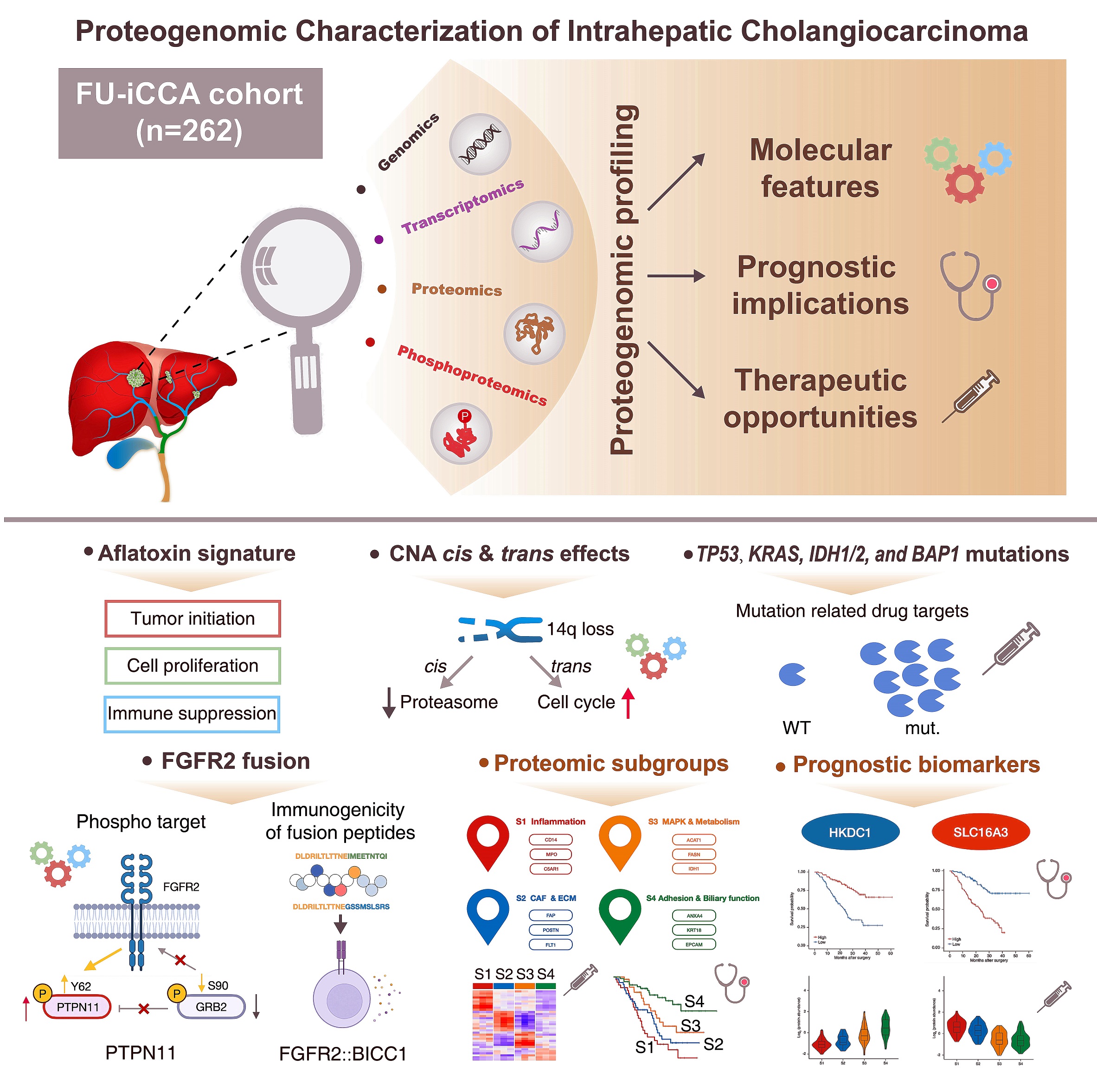Researchers Revealed Proteogenomic Characterization for Intrahepatic Cholangiocarcinoma
Intrahepatic cholangiocarcinoma (iCCA) is one of the most threatening primary hepatic malignancy. Nowadays, the surgical resection rates are low and effective treatment strategies are still limited. Therefore, deeper mechanistic insights into the pathogenesis of iCCA are urgently needed to facilitate the identification of suitable targets for therapy. The multi-dimensional “omics” strategy encompassing proteomic and phosphoproteomic profiling in conjunction with genomic analysis have shown great promise in elucidating new disease subtypes and discovering potential therapeutic targets in many cancer types.
In a study recently published in Cancer Cell, ZHOU Hu’s team from Shanghai Institute of Materia Medica, the Chinese Academy of Sciences, collaborated with FAN Jia and GAO Qiang’s team from Zhongshan Hospital, Fudan University; and GAO Daming’s team from Center for Excellence and Innovation in Molecular and Cellular Sciences, the Chinese Academy of Sciences, performed proteogenomic characterization of iCCA using paired tumor and adjacent liver tissues from 262 patients by integrating genomic, transcriptomic, proteomic and phosphoproteomic data.
Gene mutation profiling revealed that TP53, KRAS, FGFR2, IDH1/2 and BAP1 were the main driver mutations of iCCA, which were associated with different proteogenomic characteristics. Most notably, aflatoxin-specific mutation fingerprints were only found in Chinese iCCA samples, which was significantly associated with higher tumor mutation load and higher NK cell infiltration. FGFR2 fusions and mutations may promote iCCA through activating Rho GTPase pathway rather than the MAPK pathway. In addition, the immunogenic peptides derived from FGFR2:BICC1 fusion , which occurred as an early clonal event, may potentially serve as immunogenic targets. These findings enlighten targeting the specific genetic alterations.
Besides, the researchers analyzed the cis and trans effects of chromatin copy number alterations (CNAs) on mRNA, protein, and phosphoprotein abundance in iCCA, revealing that loss of 14q-associated global cis and trans correlations may provide mechanistic underpinnings for iCCA tumorigenesis. Finally, the researchers identified HKDC1 and SLC16A3 as biomarkers that may predict the opposite prognosis of iCCA.
The study provided clues for exploring tumor heterogeneity and personalized targeted/immune therapy to eventually benefit clinical practice through identifying the underlying molecular mechanisms and disease subgroups not fully captured by genomic and transcriptomic analysis.

LINK:https://www.sciencedirect.com/science/article/pii/S1535610821006590
DOI:https://doi.org/10.1016/j.ccell.2021.12.006
Contact:
DIAO Wentong
Shanghai Institute of Materia Medica, Chinese Academy of Sciences
E-mail: diaowentong@simm.ac.cn




